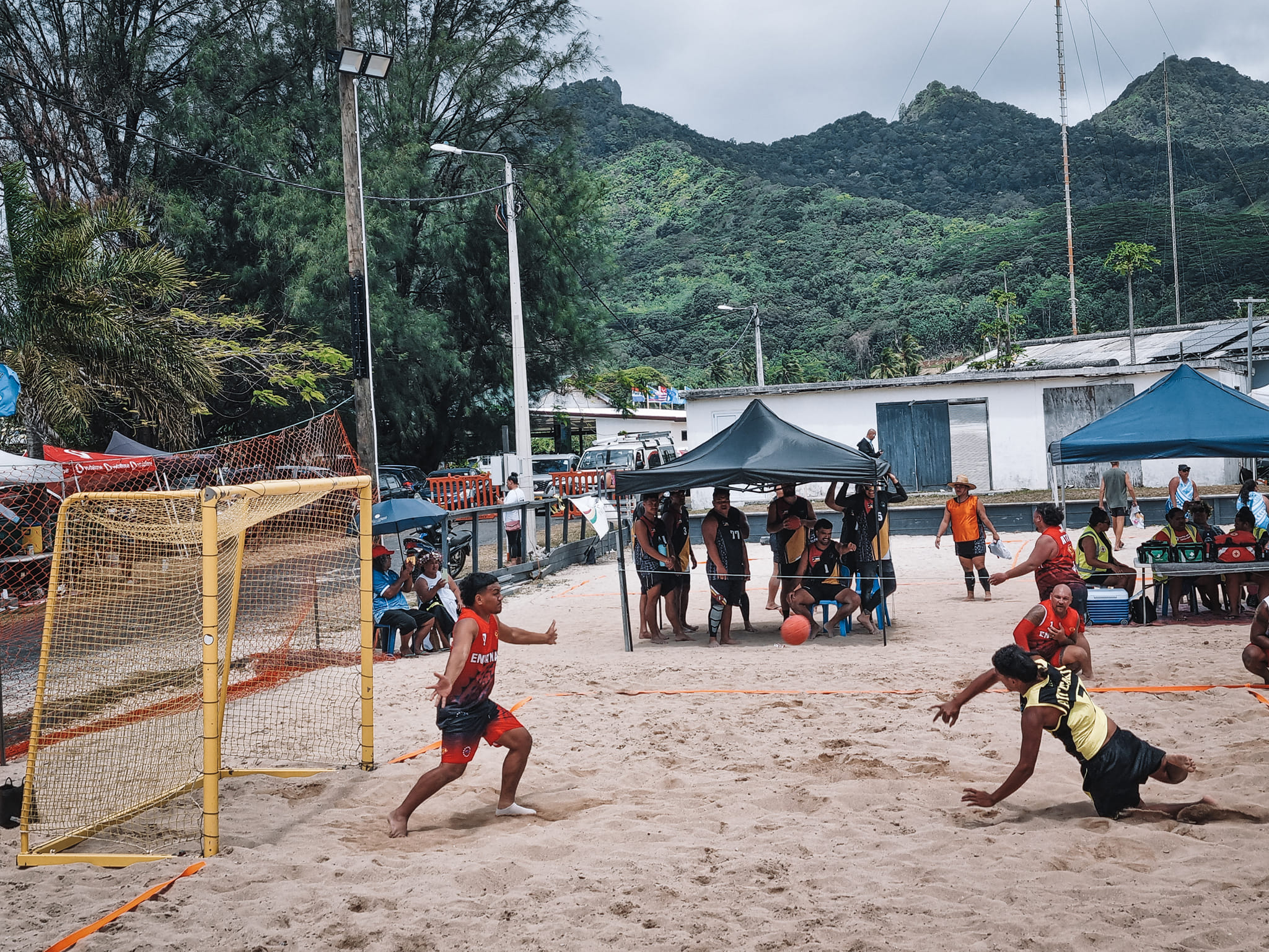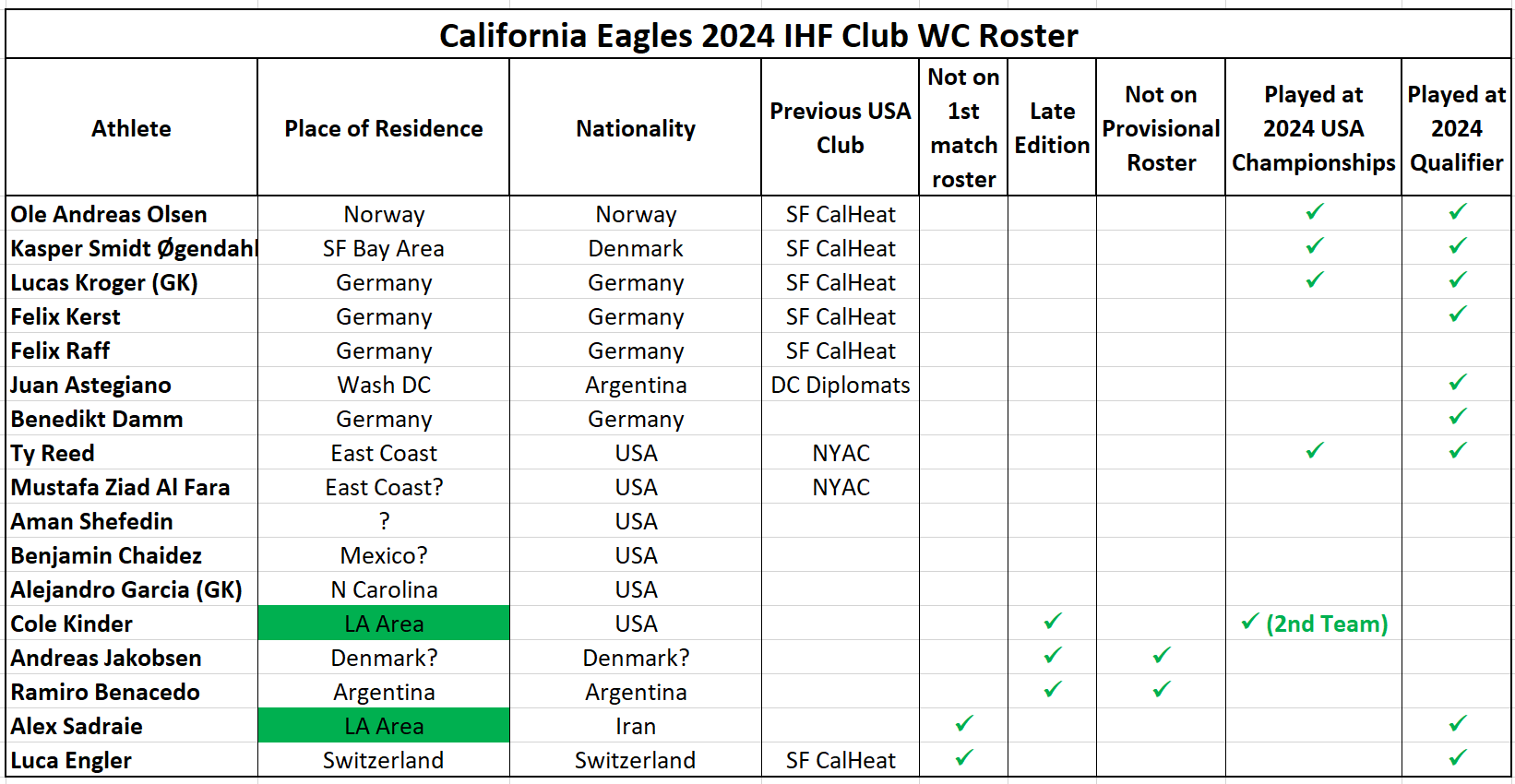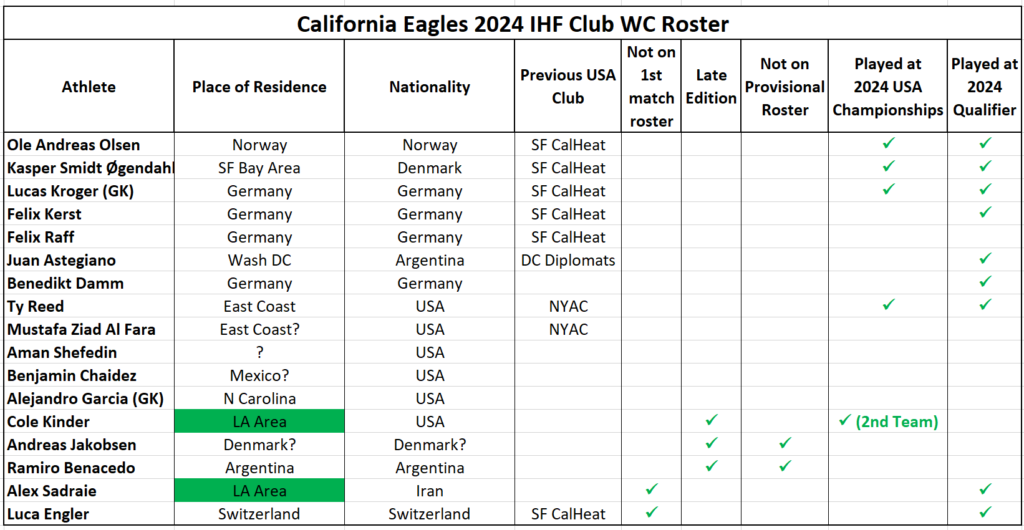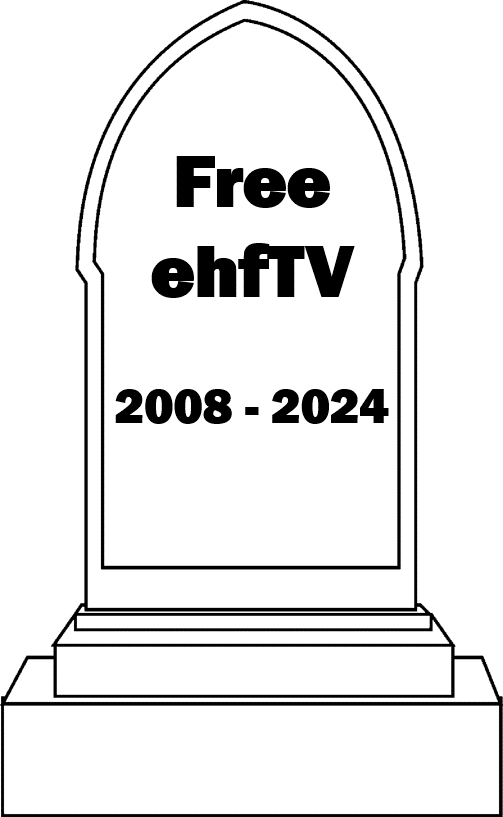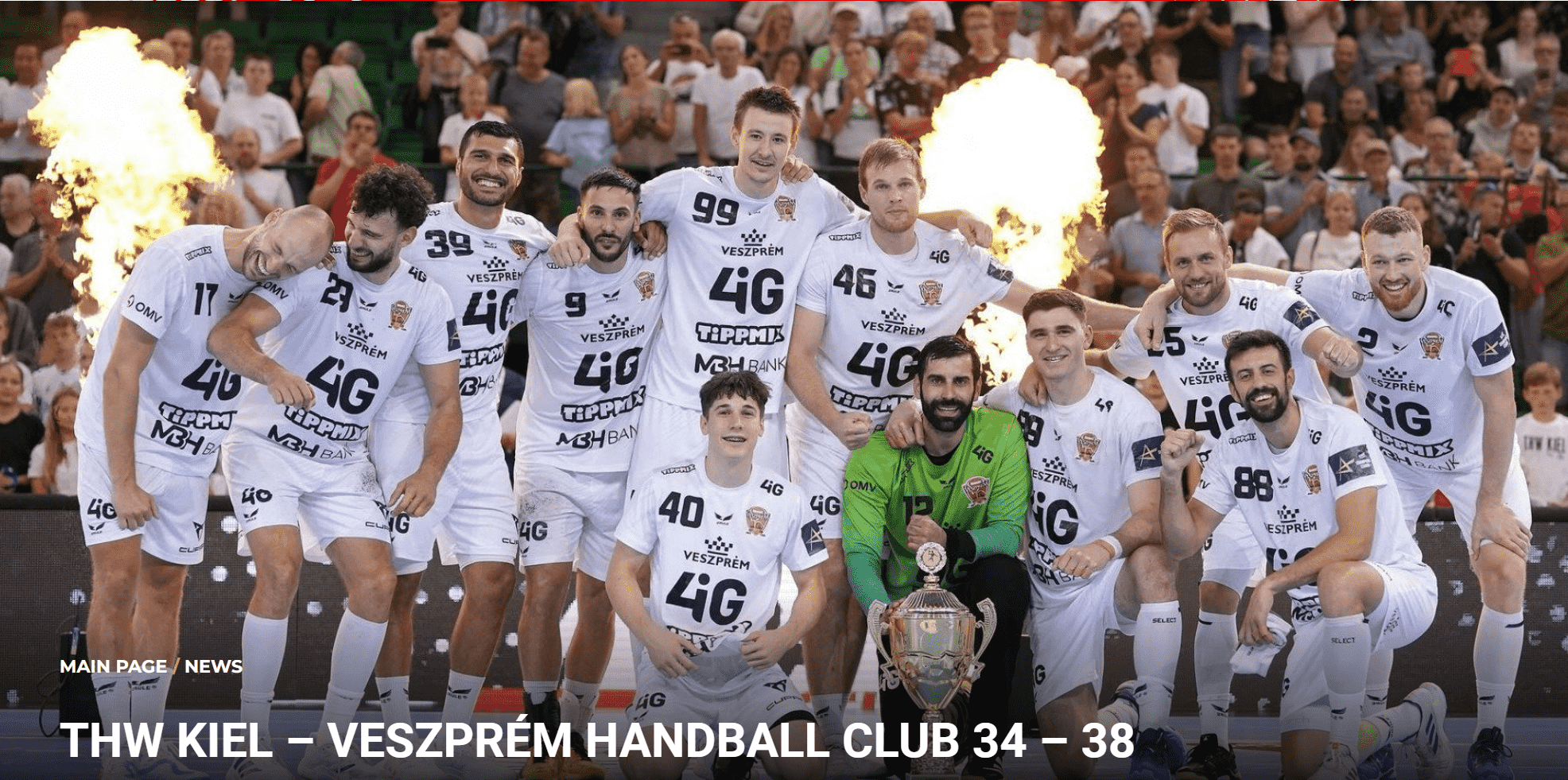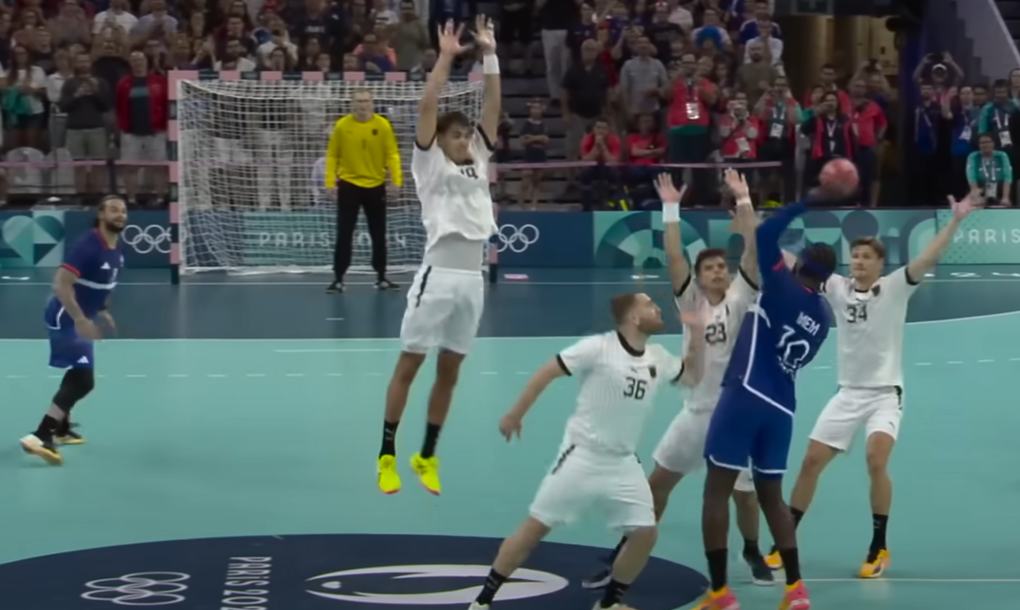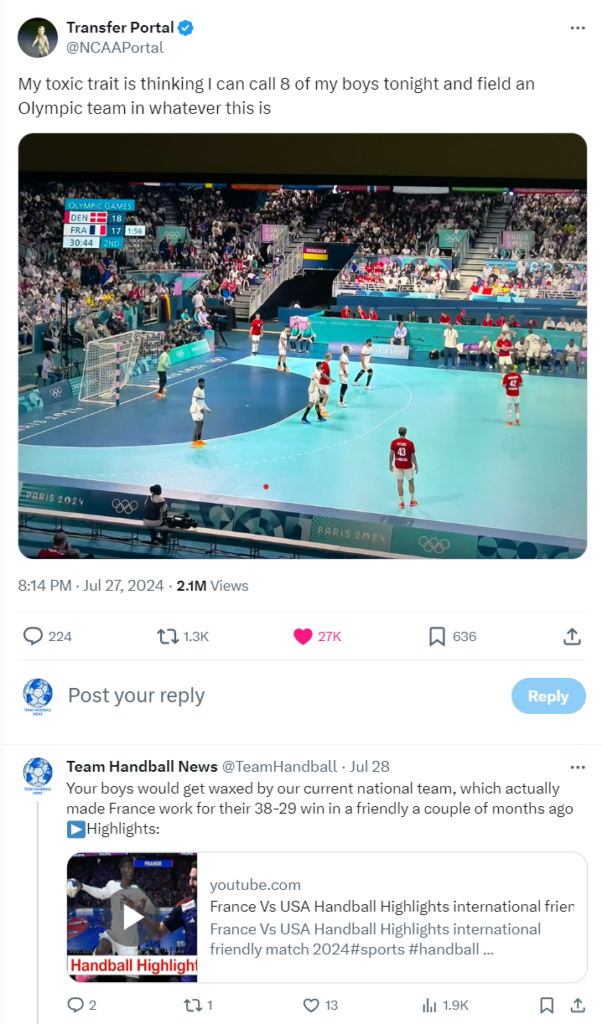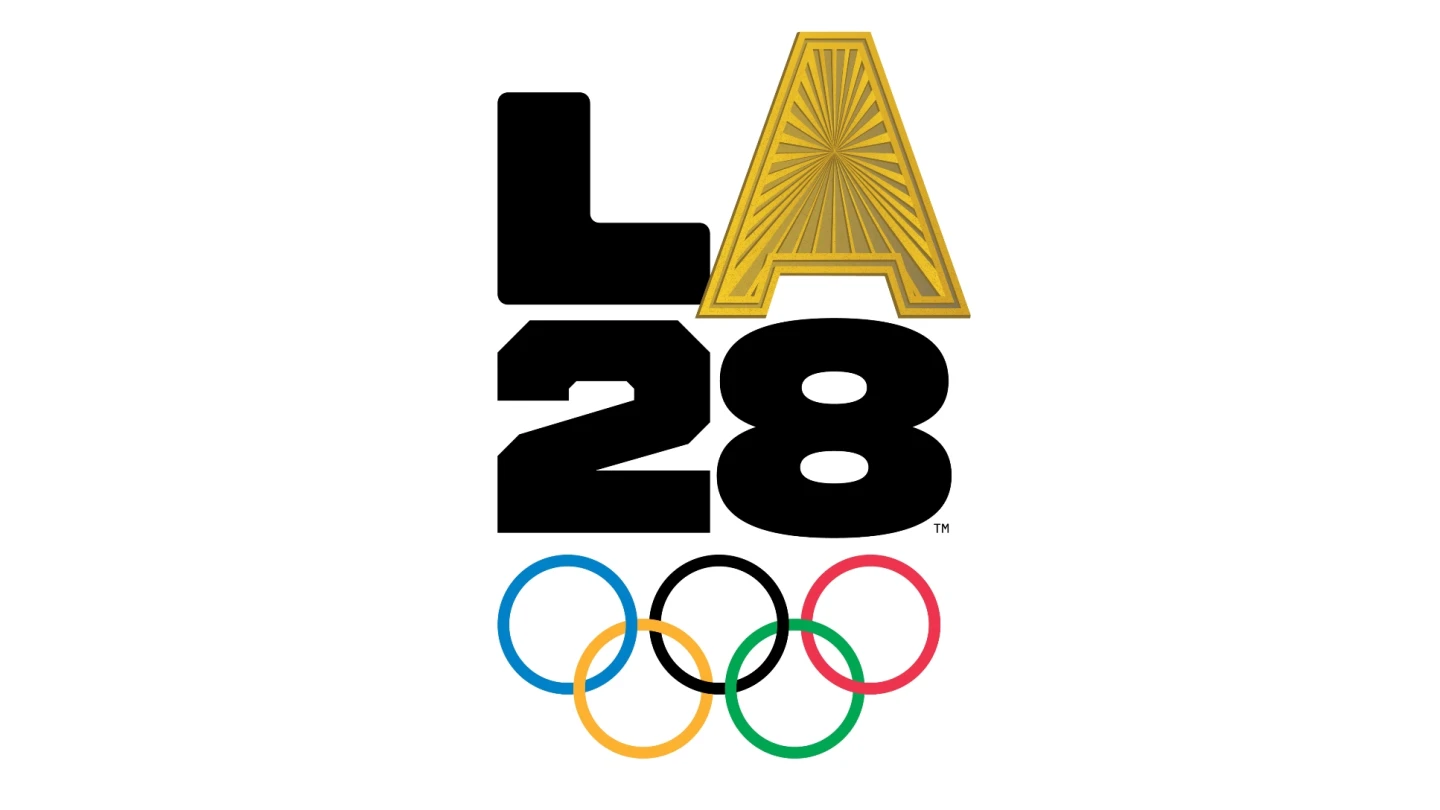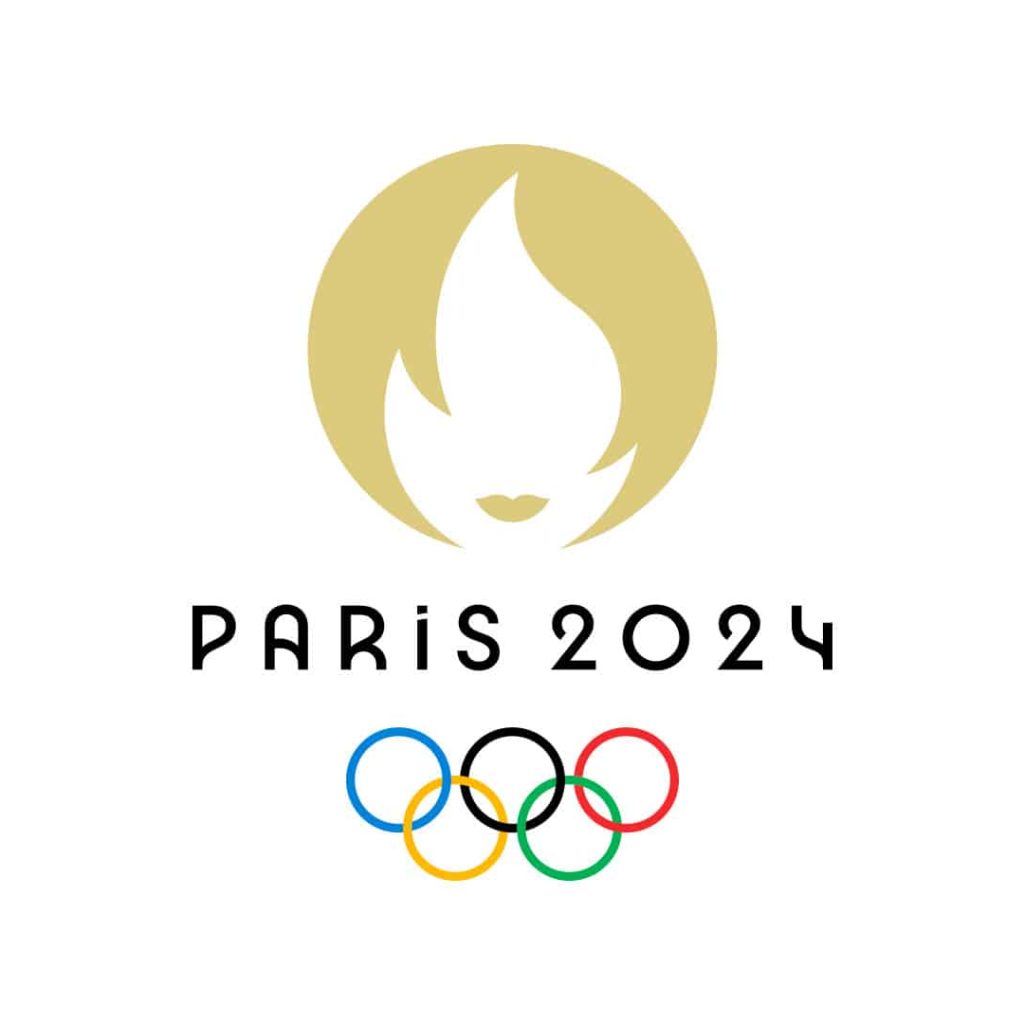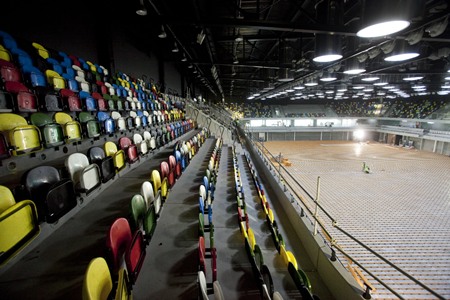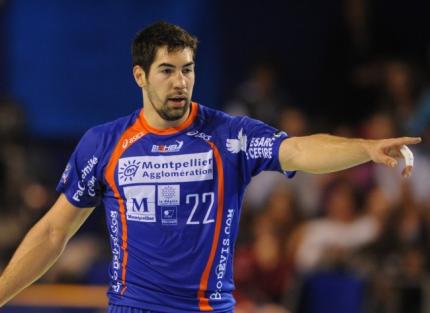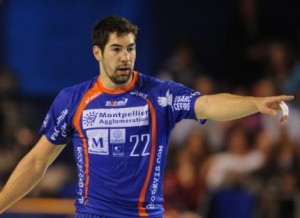This commentary is regarding the U.S. Women’s National team. For information regarding newcomer prospects for the U.S. Men’s National Team (which are dramatically different) check out this commentary.
Olympic Dreams Fueled by Possibilities
I’m sure there are hundreds, if not thousands of athletes watching the Paris Olympics, seeing handball for the first time and thinking, “What an awesome game! I would be great at this sport. Where can I play?”
And, as America’s #1 handball fan, I can tell you that such revelations are music to my ears. There’s nothing I like better than new athletes and fans following in my footsteps. And, no doubt, some of those athletes are probably thinking even grander thoughts, “Hey, the U.S. didn’t even qualify. Hardly anybody probably plays it in the U.S. Maybe I could be an Olympian. How would I go about becoming an Olympic handball player?
For over 25 years the prospects for any American handball player to become an Olympian haven’t been very good. The U.S. last qualified for an Olympics in 1996 as the host nation. And, since then we’ve never really even come close to securing a berth in qualfication events. But, now with Los Angeles hosting the 2028 Olympics that’s about to change. As Charles Barkley would say, it’s Guaranteed that we’re fielding a team. Out there, many are probably thinking… Somebody’s got to make that team. Why not me?
Unique, Uncharted Circurmstances Means it’s Definitely Possible
First things first. Let me be clear. The following is my opinion and certainly not an official USA Team Handball position. That said, I’ve got a pretty good track record of assessing handball in this country. For what it’s worth, here’s my answer to your question…
Due to a very, very small talent pool consisting of around 150 athletes with modest athletic ability there’s a decent chance you could make the 2028 U.S. Olympic Women’s Handball Team. How good are you chances? That will depends on several variables to include how good of an athlete you are, how motivated you are and what, if anything, USA Team Handball eventually does to identify, recruit and train prospective national team athletes.
Let me explain further. When I say around “150 athletes” I am not referring to our national team talent pool. No… I’m talking about 150 female athletes with American citizenship currently playing handball at any level, anywhere in the world.
Our national team athletes for the past few years have mostly been comprised of of athletes trained at our last residency program at Auburn (which closed in 2018) and dual citizen athletes who compete in Europe. With the U.S. Men we’ve been blessed with a golden generation of talent that has essentially gifted us with the most competitive team we’ve had since the 1980s.
With the U.S. Women we have been less fortunate. While hard working and great representatives of our nation collectively the raw athletic talent is similar to what one might see on an NCAA Div 3 basketball team. Not surprisingly the results have been disappointing. We have not won a match since the 2019 PANAM Games. We’re 0-0-12 in official competition and those 12 losses are not to European sides, but to peer competition in our hemisphere. If our current team were to play the teams competing at the 2024 Olympics we would be 30+ goal underdogs in every match.
- Demographics assessment from 2019 (It’s actually gotten worse)
- Overall Women Demographics: Link
- National Team Demographics: Link
- And, an important side note: Our #1 GK, Sophie Fasold, is a clear exception. She plays in Germany’s top league and is, arguably, the best GK in U.S. history.
The Variables
So with that as context let’s take a look at some of the variables that will determine an athlete’s prospects for making the 2028 U.S. Women’s National Handball Team:
- The raw talent of the athlete
- The starting age of the athlete and amount of time the athlete has to train
- The training environment the athlete will have
- The commitment level of the athlete
- The quality of the athletes also seeking to make the team
Here’s a closer look at each variable
The Raw Talent of the Athlete
With the current raw talent on the U.S. National Team roughly equivalent to an NCAA D3 basketball team an athlete that has played D1 or D2 sports in college should have an advantage against current players. This was even demonstrated at the 2023 North American & Caribbean Championships when a D2 basketball player, Katie Timmerman played significant minutes despite only a couple of training camps to learn the sport. Logically, in most cases a D1 athlete would even have better chances to make an impact.
I could also get into a lengthy discussion regarding the merits of different sports in terms of transitioning to handball. Athletes have come from many different sports, but the most common sport historically has been basketball. And, even athletes from other sports often have high school basketball in their resume.
The Starting Age of the Athlete and the Amount of Time that Athlete has to Train
Normally, I would argue that any athlete over 23 years of age is probably outside the desired range to start a training program. And, generally the younger the better. Given, however, the current cirumstances of a very small talent pool and a 4 year window, I could see a great athlete even in their 30s being a candidate. Obviously not ideal, but we’re talking a very unique situation.
The Training Environment the Athlete Would Have
For many years the U.S. had Residency Programs that were dedicated full time to developing new handball athletes. However, the U.S. hasn’t had a Residency Program since 2018 and as far as I know there are no plans to start one anytime soon.
This leaves a newcomer with very limited options. They could join a stateside club, but they typically just practice once a week and play in a few tournaments on the weekend. One could learn the basics and get their feet wet, but not much more. And, then they could also attend the periodic national team camps that are held. I’m sure any European reading this is just shaking their head in bewilderment, “Athletes who’ve never played before attending a National Team camp?.. That’s crazy.” But, that’s where we are currently at.
The other alternative would be to train with a handball club overseas, most likely in Europe. A handful of stateside based athletes have indeed done this. It’s not easy and it can be challenging to find a quality club with a good system willing to train a relative newcomer. But, again, given the state of the current program it would be your best option. Additionally, I suspect that a higher level athlete with potential would get some help from the national team staff in making such a move.
The Commitment Level of the Athlete
Having great raw talent is a significant advantage, but it’s not everything. An average athlete with modest talent, but knows how to play handball also has an advantage. Sometimes raw talent trumps handball skills, but often the reverse is true. With the necessary commitment to learn the sport, however, it’s only a matter of time before the contest changes from who knows how to play… to who’s the better athlete.
The huge unknown here, however, isn’t necessarily the “attitude” of the athlete. Commitment is a 2 way street. The athlete commits to work hard and get better. And, USA Team Handball commits to provide that athlete with the tools and opportunities to get better. Unfortunately, right now as an organization USA can’t provide athletes very much in return for their commitment. In fact, national team athletes are actually paying thousands of dollars out of their own pocket to represent their nation. And, not surprisingly… quite a few athletes don’t want to commit to that.
The Quality of the Athletes also Seeking to Make the Team
For the most part I’ve framed this discussion as what would it take for a decent athlete to develop into a handball player that given the current talent pool could make the U.S. National Team. That’s a fairly straightforward comparison.
But, what’s really hard to assess is the number and quality of new athletes that might take steps to earn a roster spot. Right now there’s not much in place to entice a relative newcomer to make such an effort. That translates to fewer athletes competing for slots and lower quality athletes making the team. If a more structured program is put in place more and better quality athletes will start showing up.
The Great Unknown: What Steps will USA Team Handball Take… and When Will they Take them
You might have noticed that one variable I listed was:
- What, if anything, USA Team Handball eventually does to identify, recruit and train prospective national team athletes
Right now USA Team Handball’s recruitment is very limited. Emails are sent out to college coaches and open tryouts are held, but there’s really no training program in place. I have a hard time believing that won’t change at some point, but I don’t know what it will entail or when it will be implemented.
And, this results in the strange cirumstances that while I can say with a high degree of confidence that total newcomers to handball are likely to make our 2028 Olympic Team I don’t know exactly how they’re going to do it.
